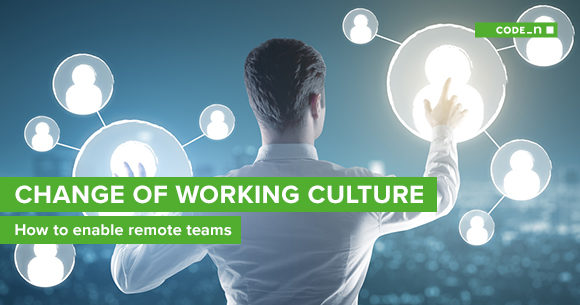Mobile workforce: what businesses have to watch out for
We recently highlighted the increased efficiency that remote working has on a business in our article the future trends of work for companies. The ability to work from anywhere is now commonplace and widely accepted thanks to new innovations, technologies and a change of working culture, which strives for efficiency. Consider for a moment how much time we waste on travelling to work, meetings, people not turning up on time etc. As we try to squeeze more and more into our day, time is arguably at its highest premium.
So the question is; how can we work more effectively with clients, suppliers and colleagues with the use of new technology?
In this article we review two very important aspects of connected collaboration: mobile collaboration applications and IT-security.

Mobile collaboration applications should be rolled out in alignment with business goals
Most companies today provide their employees with email, calendars, contact lists and critical business apps pre-loaded onto a work mobile device. But millennial workers (in particular) often need and want more than your base selection in order to be more productive. They lean heavily on instant face-to-face and textual communication technologies such as Skype and Facetime, Slack and other similar apps. They also often want to be able to check specific news feeds from mobile devices across a variety of apps.
We believe that organizations need to move ahead of basic mobile collaboration tools and invest in advanced internal and external mobile collaboration initiatives that support important business functions like reporting, project management, and real-time collaboration on documents. Additionally, you should consider tools that include mobile access to Microsoft Office applications, travel and expense management tools, CRM systems, HR business systems, and other business systems required on a company-wide or departmental basis.
Our Alumnus Conceptboard offers a great tool to enable collaboration on visual projects. With Conceptboard, remote teams can work online on visual contents like prototypes, design drafts, or marketing campaigns. The combination of online whiteboards, real-time conferencing and project management already supports the creative workflows of more than half a million users around the globe. Daniel Bohn, Founder & Product Lead of Conceptboard stated that: “Today’s employees expect a workplace that is intuitively usable, like the apps on their tablet at home. When a company ensures that, they can unlock huge potentials: efficiency, motivation, and creativity. That’s what we see every day here at Conceptboard. And it’s what makes our customers successful.”

Enabling mobile workforce: Take care of a suitable level of IT-security
Ever heard of “Bring Your Own Application” (BYOA)? It refers to the notion of employees choosing to install apps off their own back on their work mobile device.
For better or worse, if an employee does not have access to the mobile apps they feel necessary for working efficiently, they are likely to download it on their own. Unfortunately, this can often mean a massive data security problem in your IT security. Therefore, as an employer it’s critical to understand exactly what mobile apps your workforce may require in order to improve their efficiency, and then stress test them through your IT department or IT security consultant.
Something else you may want to consider is whether you provide your workers with work specific mobile devices or encourage them to use their own for work. Obviously, companies that provide devices and strict guidelines will have more control over what can be downloaded to a device, security levels, and billing parameters.
Either way, security can be provided in a number of ways by Virtual Private Networks (VPN) or Master Device Management (MDM).
Want to learn more about mobile working and changing working cultures through digitalization? These articles on our CODE_n blog could also interest you:
Digital transformation is changing our working life – Get prepared for these 3 trends!
The future trends of work for companies: how working places will change due to the robotic boom





Comments